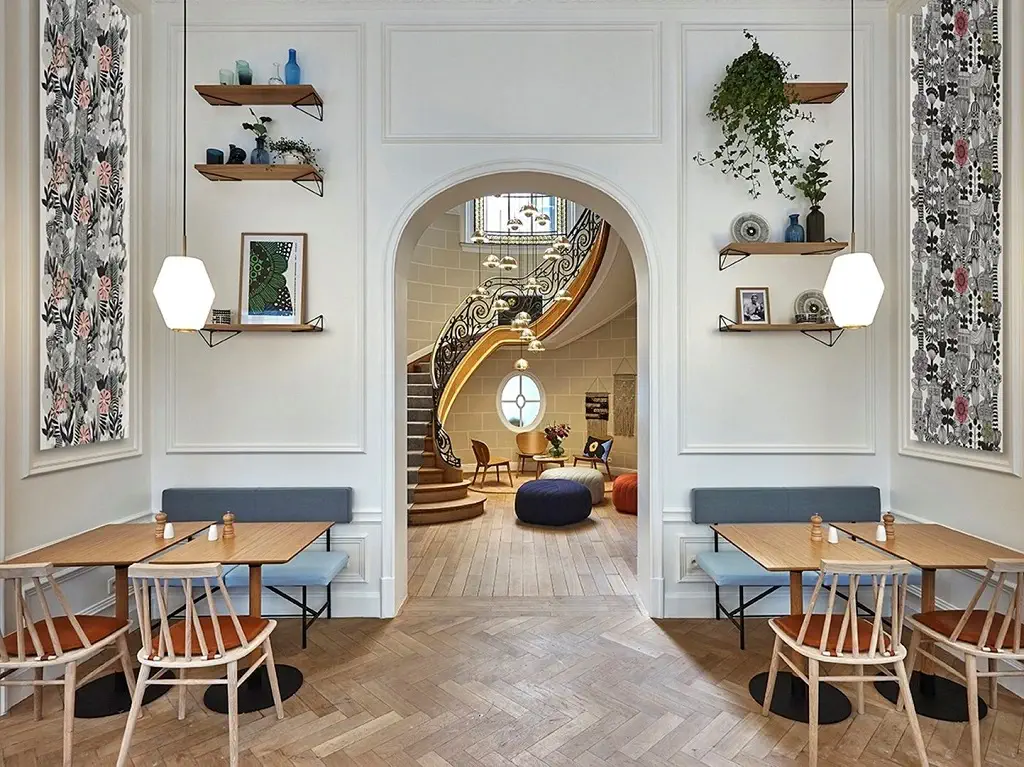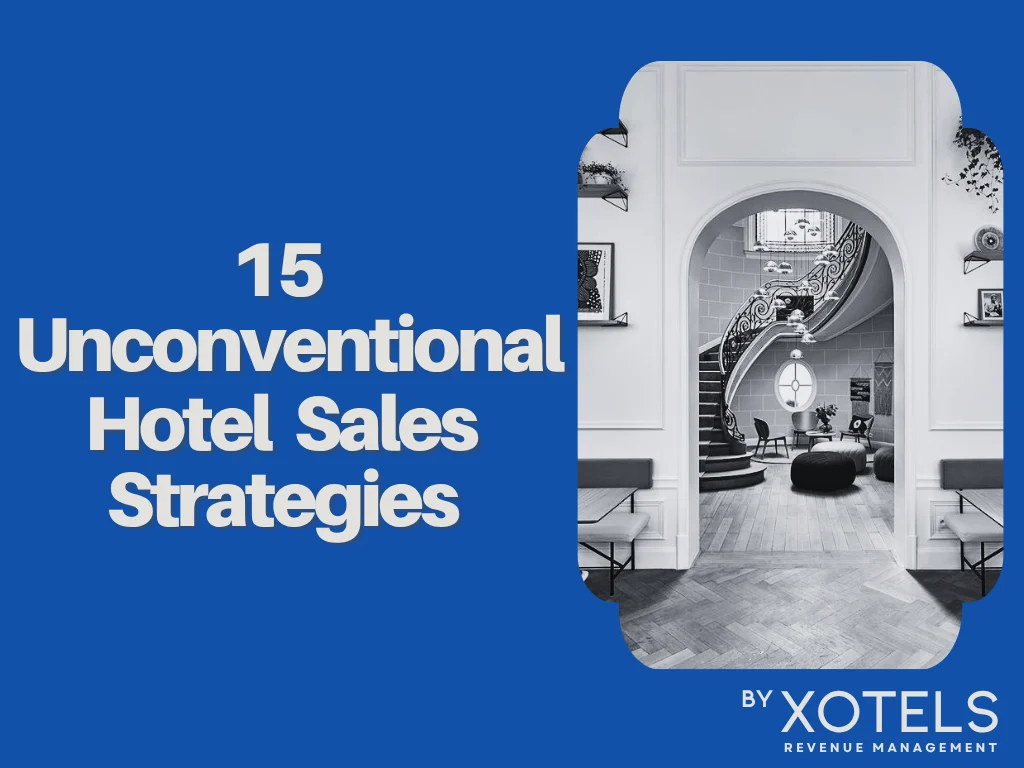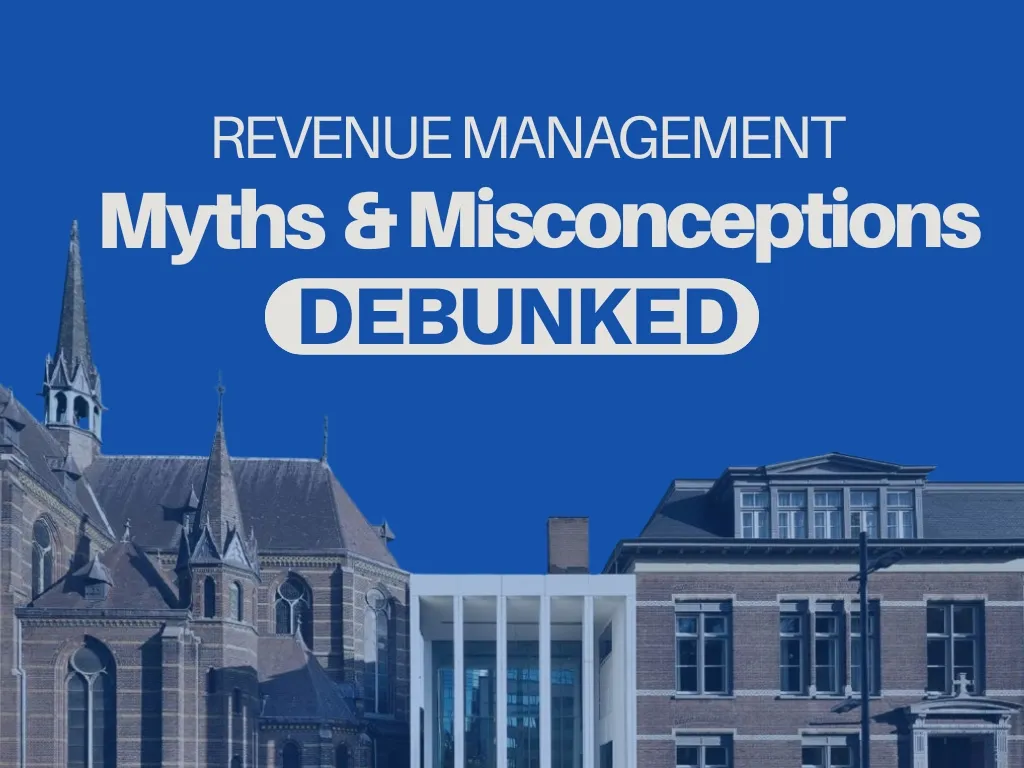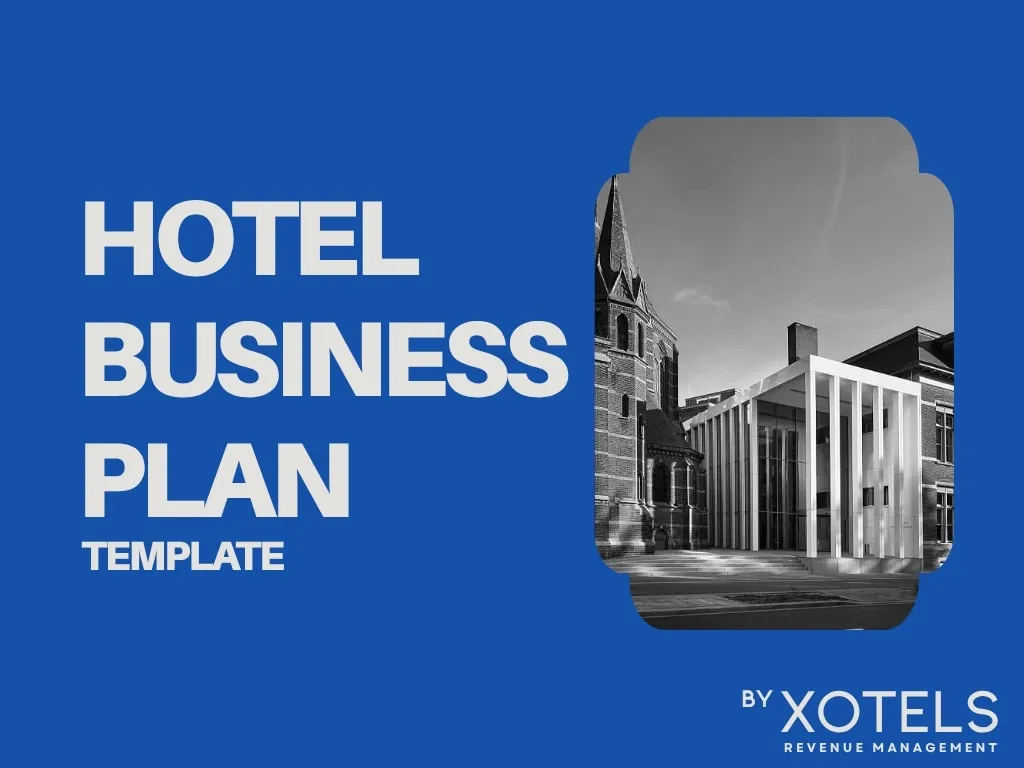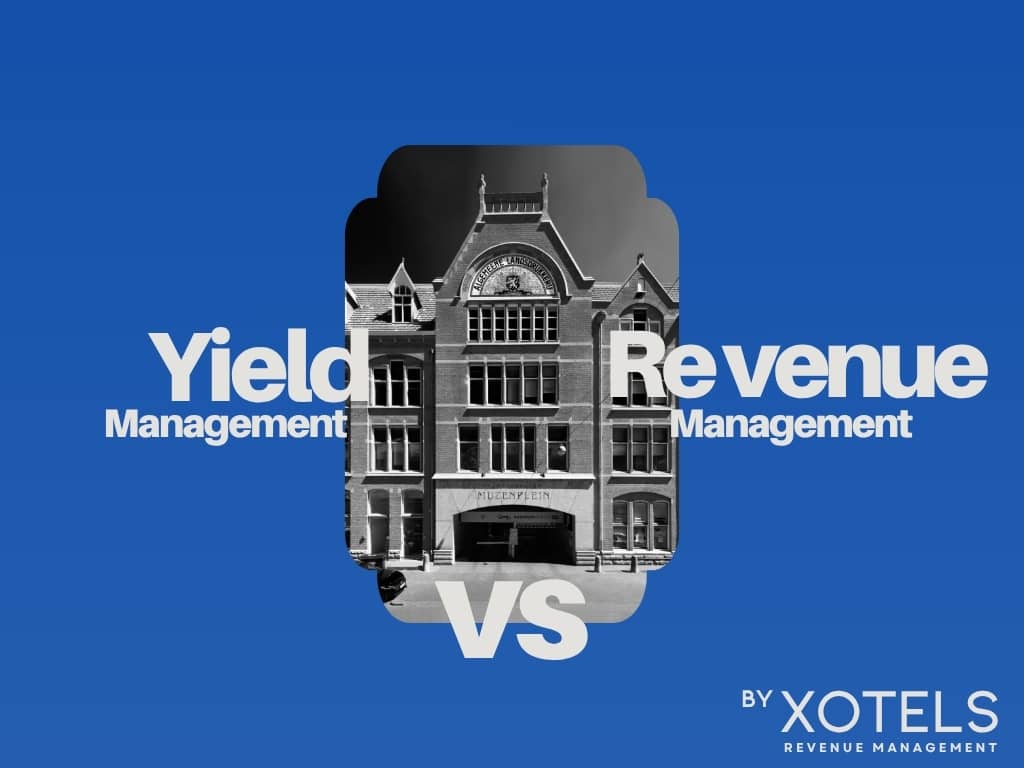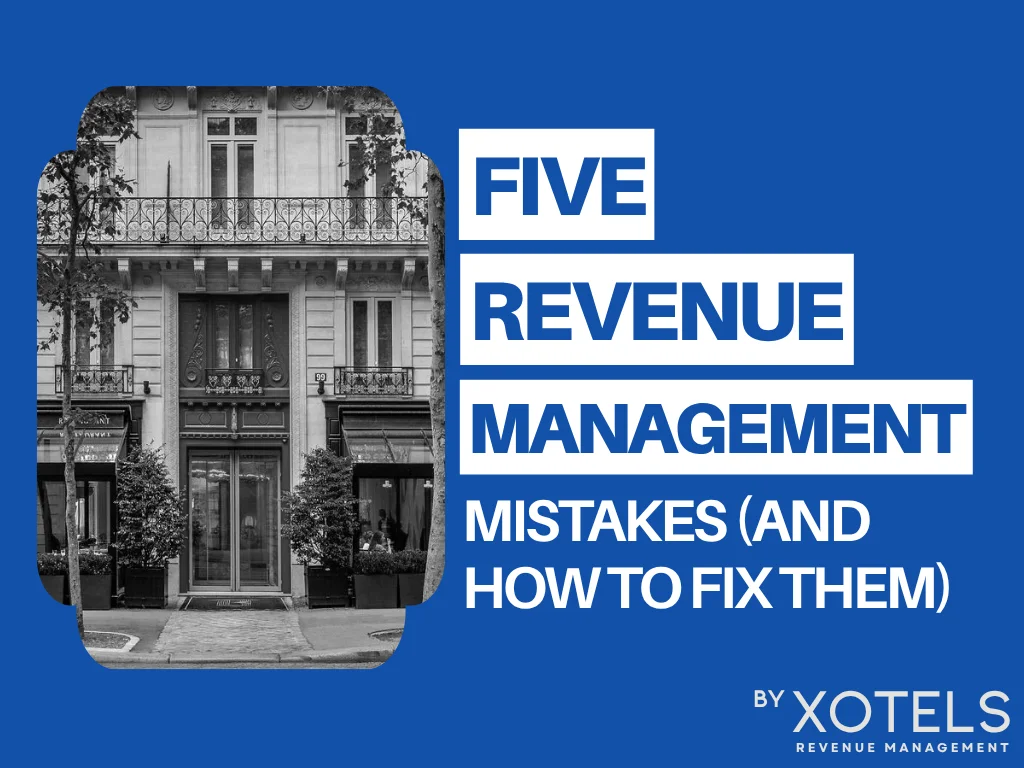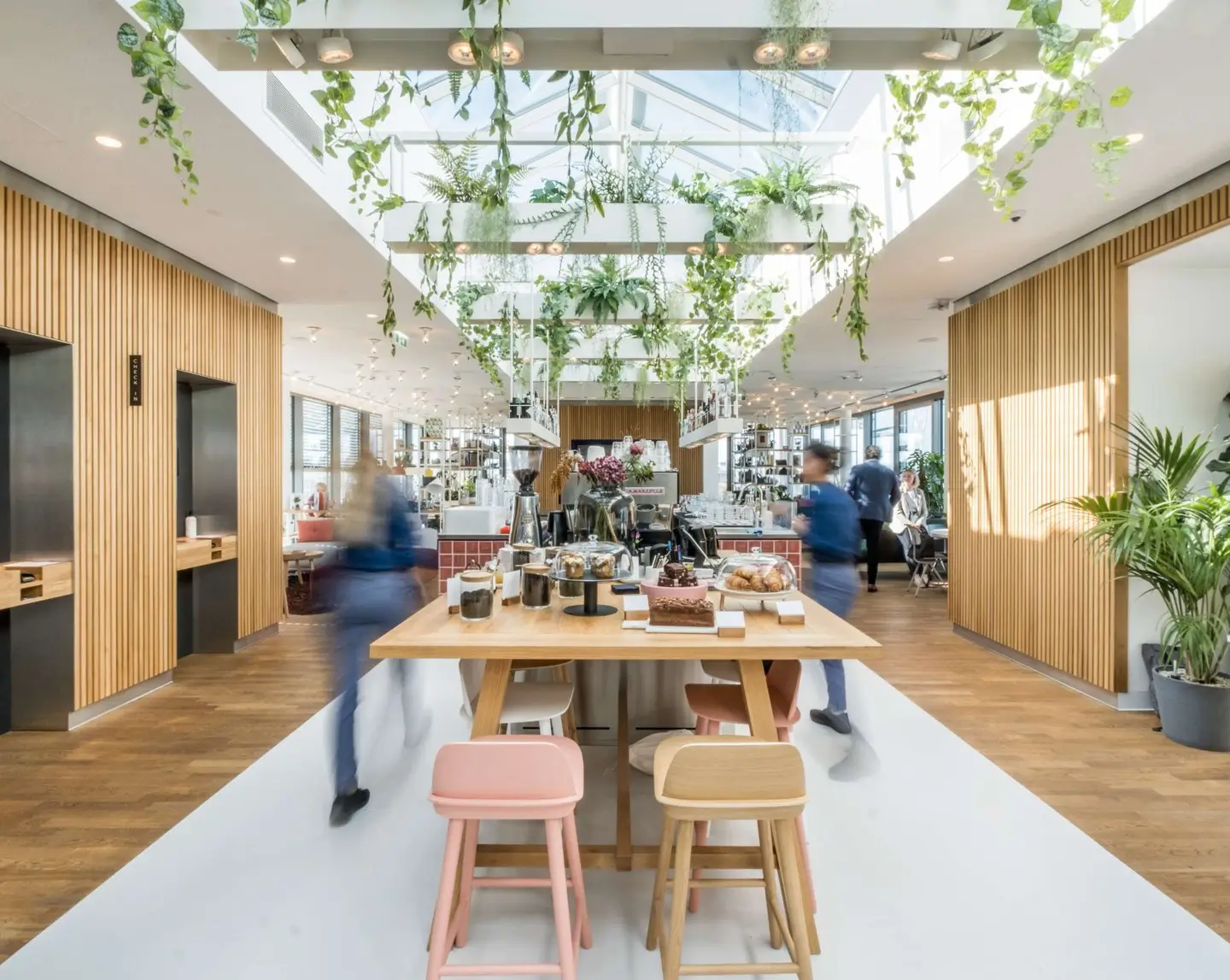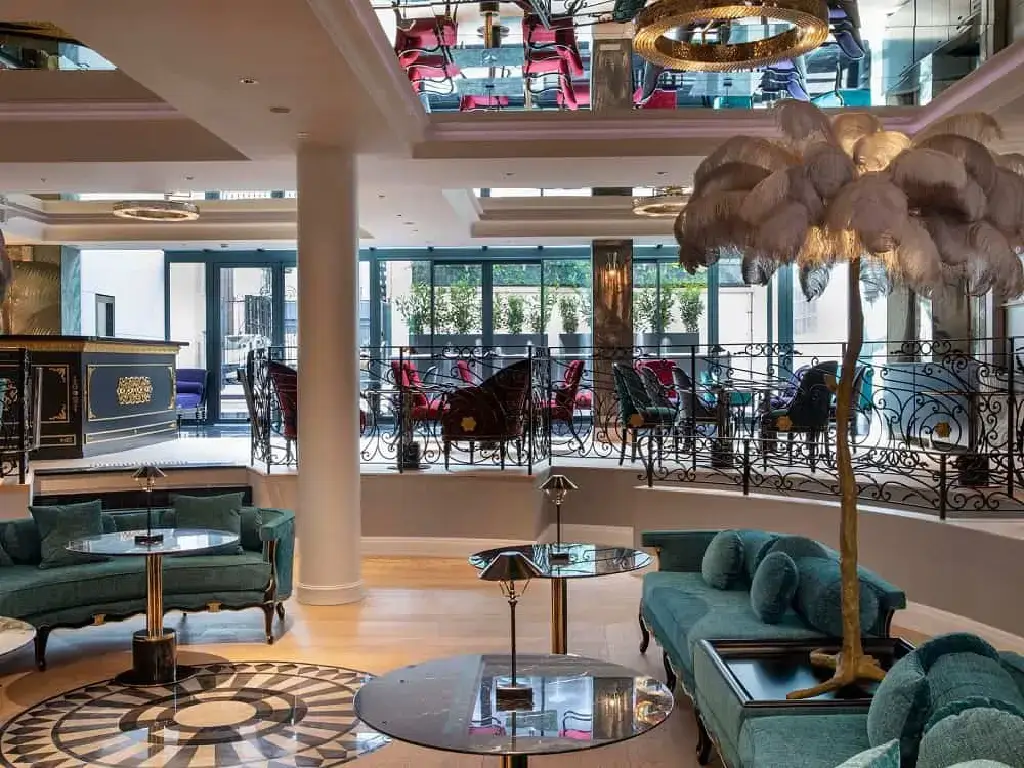10 Ways on How to Improve Hotel Operations
If you’re reading this, chances are you’re looking for ways to improve your hotel´s operational performance – and you are unsure what actions to take and which tasks to prioritize. And understandably so, since creating a successful hotel business is anything but a straightforward – cookie-cutter process and success definitely doesn’t come overnight… It requires careful planning, prioritization and dedication to achieve great results for a hotel.
Running operations as a hotel management company and hotel revenue management consulting for a diverse portfolio of independent and boutique hotels in a variety of cities and countries, our hotel consultants have seen the same concerns pertaining prioritization and decision making. There is always room for improvement on challenges the hotel industry faces, whether it is making the right decisions, optimizing work processes, providing higher quality service, or aligning departments and objectives.
Let’s dig into the following best practices and strategies to improve your hotel operations:
- Making the Right Decisions
- Know your Guests and Personalize
- Preparation is Key: Don’t wait until your Guests Arrive!
- Empower your Employees
- Create a Culture of Ownership
- Communicate and Cross-communicate
- Work smarter, not Harder…
- Standardization, The Key to Building a Strong Brand
- Leverage Technology and Software for Efficiency
- Opting for Outsourcing to Uncover Hidden Potential
Impact of COVID-19 on Operations
The key to providing exceptional customer service, and thereby, creating a successful hotel business, starts with hotel operations at the foundation. Losing focus or neglecting operations is likely to cause major performance issues. So how does this work, in times where travel is not fully recovered, and subsequently, staffing levels are not back at what they used to be. Unfortunately, we can’t sit back and wait for better times to arrive. Now is the time to take action and make your hotel stand out. Let’s find out!
1. Making the Right Decisions
Anyone working in the will know that it is easy to get overwhelmed by the number of tasks and opportunities that are always at hand. For this reason, it is highly important to set priorities. Without establishing the right set of priorities you will run the risk of overlooking more important responsibilities that can directly compromise service quality of your hospitality operations.
My recommendation is to always start with a logical outline based on the following question:
“What brings the most value to your guests?”
Following the same reasoning, you can start establishing which processes and initiatives constitute to building a great guest experience. Importantly, this can be done on a case-per-case basis that is adaptable to accommodate the wide variation in products and services inherently present in the hotel industry.
2. Know your Guests and Personalize
Another question that hoteliers should ask themselves is “do you know what your guests want?”. If not, it’s about time to get to know them a little better! Start reaping the benefits of a well built and maintained customer database.
“Do you know what your guests want?. If not, it’s about time to get to know them a little better!”
Through personalizing services and products you can increase revenue and customer experience. An essential step is to focus on recording guest preferences and thoroughly developing their profiles, which should all be tracked in your hotel´s operating software CRM. Also, don’t forget to push the importance of capturing hotel guest data and email addresses to your staff. Without their efforts this strategy will struggle to take off!
3. Preparation is Key: Don’t Wait Until Your Guests Arrive!
Waiting for opportunities until the guest arrives will work against your operations in many ways. Instead, it is better to take a proactive stance and start driving customer experience and revenue from the get go. The benefits are abundant, namely:
Increase the interaction time with your guests:
- Making the service feel more attentive and generally of a higher level;
- Increase exposure of your products and services to your guests. This equals more revenue opportunities;
- Higher chance the guest will get the most out of their stay, by providing them with more inspiring plans to add to their itinerary.
Facilitate a truly worry-free vacation!
Take care of the planning and decision making process. Curate a selection of various activities for different stay durations so every guest can just follow the itinerary without having to do their own research and planning.
Answer pre-arrival questions:
Any questions or issues can be answered before arrival, alleviating some workload that otherwise would be carried by front office staff.
Think of sending a welcome email (providing basic information and confirming their booking) followed by an email shortly before the guest´s arrival (directions to the hotel, parking information, things to do, products and services in the hotel incl. bookable options). This also proposes opportunities to drive traffic to your website (e.g. package pages and blog posts), which is always beneficial when it comes to SEO.
4. Empower Your Employees
Foster an environment centered around empowerment and training. Employees should be able to become the one person guests can go to for everything.
Equipping them with the right knowledge and tools will help them in dealing with any unexpected situations. The confidence that is built in this process can both be felt by guests and the employees themselves, who will feel more comfortable and prepared for any situation they might encounter.
Learning from different angles within the hotel will make this process a lot easier, so make sure to include cross-training between different departments and information sharing an integral part of the road towards empowerment.
5. Create a Culture of Ownership
A problem we see too often is lack of ownership. Nothing is worse than making the guest feel like their issue is being passed on and on to others. You might even be better off saying that you’re not interested in dealing with the issue in the first place… This goes back to our previous point about empowering employees to take care of any situation by themselves. Dealing with issues directly shows you care and lets guests know you’re involved in ensuring they have a wonderful stay.
6. Communicate and Cross-communicate
One thing we’ll always keep preaching for is increasing the level of communication between departments and breaking existing silos. And for good reason. Cross-communication is the only way to overcome persisting operational bottlenecks.
Solving complex issues and increasing performance across the board requires stepping away from working with blinders on. You´ll be surprised how many team members are still working in completely different directions from one another! Instead, start aligning objectives and heighten intern-departmental communication. By taking in different perspectives and ensuring crucial information can be shared openly, hotels can prevent unnecessary loss of efficiency and maximize opportunities.
7. Work smarter, Not Harder…
Find ways to reduce the execution time of operational processes without skimping on services. Working smarter will have a positive effect on service delivery time and reduce the workload carried by employees.
Front Office
Make it as easy for the guest! Plan their arrival ahead of time and make sure everything is ready upon check in. Complete their check in form as much as possible with the information on hand, allocate the right room, and have processes like express check in/out processes in place.
Food and Beverage
More is not always more is hospitality. A great example of less is more can be reducing the menu size. Having a good look at the size of your menu and choice of ingredients can have a major impact on the performance of F&B operations. Smaller menus allow for faster preparation times, fresher ingredients, less risk of waste, and therefore, lower food cost. Also, don´t forget to look into including local ingredients on your menu while you’re at it, to guarantee the freshest produce and local experience is delivered to your customers.
Housekeeping
Riding on the wave of improved sustainability efforts in hospitality, benefits can be obtained by bringing down linen and amenity refreshments, minimizing waste and energy consumption and reducing labor and material cost. Again, make sure to record this information for future reference in your systems so guests don’t have to communicate this twice.
8. Standardization, The Key to Building a Strong Brand
Talking about improving hotel operations can´t go without addressing SOPs, which are at the heart of a hotel´s operations. They play a key role in making sure processes run smoothly and guests are provided with the best service, as consistently as possible.
Writing SOPs seems like an easy task at hand, but be careful, taking the cookie cutter approach here could cost you dearly. We are mainly talking about two things here;
- Every hotel is different, make sure your SOPs reflect that. Some workflows might work well for one hotel, but require small changes to make it work perfectly for another;
- BRANDING! : making sure that your brand values are reflected in your SOPs is essential. It allows employees to adopt the values of your hotel and thereby communicate the brand message that you would like to portray much better to your guests.
9. Leverage Technology and Software for Efficiency
Technology plays an integral role in improving hotel operations. A solid tech stack can help hotels save time and improve guest experience. Specifically, the below tools can greatly improve your hotel´s operational performance:
PMS (Property Management System) & POS (Point of Sale System)
- Frictionless interaction with customers;
- Reduce labour intensity and risk of errors through automation;
- Access to better data (less prone to errors than manual reporting);
- Well designed systems allow for features such as keyless check in.
CRM system (Customer Relationship Management)
- Drive loyalty and increase service level through personalized offerings;
- Automated marketing initiatives including email campaigns.
RMS (Revenue Management System)
- More in-depth analysis of hotel performance;
- Less time consuming analysis.
Internal collaboration tools
- Software to manage guests preferences, requests, complaints, maintenance, housekeeping, internal communication and more…
10. Opting for Outsourcing to Uncover Hidden Potential
As we always say as a seasoned hotel management company, success doesn’t come overnight, requiring tremendous effort and focus on the right initiatives to eventually get great results. Piecing together these puzzle pieces can leave a strain on the employees and management, causing them to lose focus which is where performance usually starts to slip. Solving performance issues can often become too big of a burden to carry for hotels that don’t possess the required in-house expertise and know-how. Opting for hotel consulting or revenue management consulting can be the key to unlock the true potential of a hotel.
Uncover the hidden revenue potential of your hotel
or resort.
Ready to tackle your hotel operations and increase your performance? Hopefully, this article helped to get your eyes on the right objectives to get your hotel operations back on track!
Cheers,
Patrick Landman
Need help with improving your hotel’s operations? Click here to see which Hotel Management & Consulting Services we provide to turn your hotel´s performance around.
More Free Resources
Top 10 Popular Posts
Blog Categories
Share This Story, Choose Your Platform!

About the Author:
As CEO and Founder of XOTELS, Patrick Landman has made it his mission to turn hotels and resorts into local market leaders. XOTELS´ diverse expertise and deep-knowledge across revenue management consulting, hotel management, and hotel consulting, enables us to drive results for independent boutique hotels, luxury resorts, and innovative lodging concepts. Below you will find opinion articles written by Patrick Landman.

